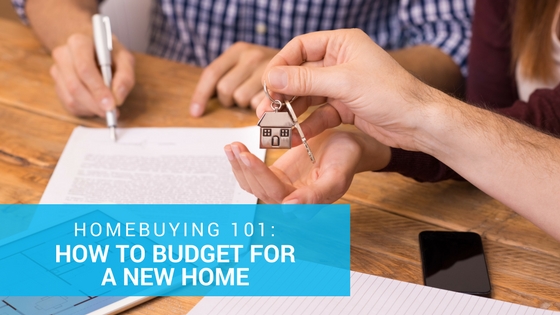
Buying a new home can be both exciting and overwhelming at the same time. Like all major financial decisions, deciding to purchase a home shouldn’t be taken lightly! If buying a new home is your goal, then figuring out how much you can comfortably afford for your new home is the key to home-buying success.
Money Under 30 explains three simple rules of home affordability to help determine how much you can afford:
- Maximum mortgage payment (Rule of 28): this is the golden rule in figuring out your maximum monthly mortgage payment. Most mortgage lenders require a housing expense ratio that is less than 28% of your gross (pre-tax) monthly income. With that requirement in mind, if you have an annual income of $80,000, your monthly mortgage payment should not exceed $1,866.
- Maximum total housing payment (Rule of 32): this rule specifies that your TOTAL housing payment (mortgage, homeowner’s insurance, private mortgage insurance (PMI), property taxes, and homeowner’s association fees) shouldn’t exceed more than 32% of your gross monthly income. Using the example above, your total monthly housing payment should not exceed $2,133.
- Maximum monthly debt payments (Rule of 40): this calculation considers ALL your debts, including housing, auto or student loan payments, and minimum credit card payments. This amount shouldn’t exceed 40% of your monthly. Calculate this by subtracting your monthly debt payments from your maximum mortgage payment to determine how much your monthly mortgage payment should be. This rule means that if you have a large car payment or credit card debt, you won’t be able to afford as much in mortgage payments.
There’s more to owning a home than just paying the mortgage and property taxes. Don’t forget to budget for additional costs like maintenance (a benefit of purchasing a new construction home means your monthly maintenance costs are substantially lower than those in an existing home), homeowners insurance, utilities, transportation, groceries, other discretionary spending and future expenses (like kids or vacations).
If you’ve run the numbers and feel confident to make the leap into homeownership, here are a few tips to get ready for the homebuying process:
- Build Your Credit: take the time to review your credit score for accuracy, fix any mistakes, and improve your score if necessary. Having a high credit score will help you qualify for an affordable mortgage rate. To improve your credit score, pay off any past-due balances, pay current bills on-time and reduce your debt utilization rate to below 30% of the credit limit for each open line of credit.
- Practice Saving by Paying ‘Mortgage’: Getting in the habit of paying mortgage and saving will help in the long run. After determining what your estimated mortgage payment should be, save the difference between the mortgage and your current rent payment each month. This is a great way to see if you can afford the higher mortgage payment and save for a down payment.
- Reduce debt: Your overall debt-to-income ratio is an important factor for mortgage lenders when approving loan requests. To improve the likelihood of a loan approval, do your best to reduce your current debt load.
Doing your homework now will make you better prepared to purchase your new home in the future. If you’re ready to start that new home journey, visit LexingtonChicago.com to view our new home communities throughout Chicagoland and our quick delivery homes. We look forward to welcoming you to your new home.